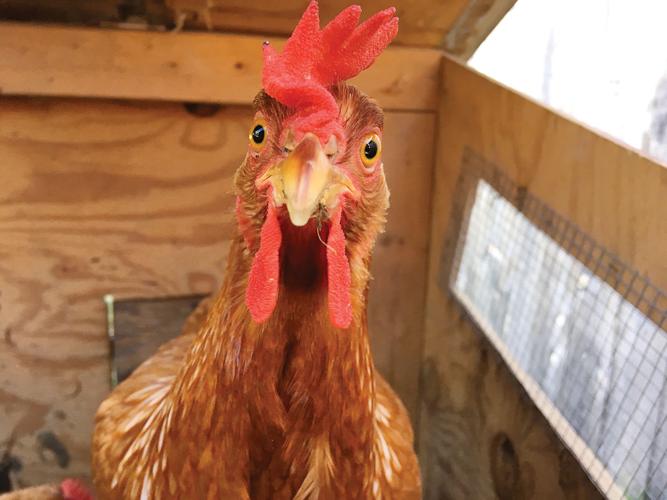Winter. Is. Coming.
Despite autumn’s unseasonably warm start, winter will still begin Dec. 21, the mountain will open around Nov. 17, and since this is Vermont, flakes could fly as early as Halloween.
It’s important to winterize your home before then, so you’re not running around trying to get things in order after the first pummeling, say area home maintenance experts like A.J. Shinners, who owns Yankee Home Solutions.
Heating systems are crucial to a successful winter as a Vermont homeowner, so it’s essential to be sure all systems are working properly.
“Probably one of the most important things that a homeowner needs to do, or the person that’s managing the building, is you just need to check on the last service of your heating unit,” Shinners said. “Make sure that it’s been cleaned. People don’t do it all the time, and it’s been years and years, and then the problem doesn’t happen until it’s freezing cold and pipes burst.”
Todd Shonio, who owns Stowe Home Care Maintenance in Morristown, agrees.
“The most important one is your furnace. Make sure your chimneys and furnace are clean,” Shonio said.
Fireplaces and woodstoves aren’t exempt from winter cleaning.
“Fireplaces get overlooked all the time. That’s even worse,” Shinners said. “There could be something in there, like animals or birds’ nests, or the damper doesn’t open, and you could fill the whole house with smoke.”
Once the heat’s on, it’s important that doors and windows seal up properly, and that screens are swapped out for storm windows, Shonio said.
Modern homes make it easier to trap heat and keep it inside, but “older houses definitely have more prep for the winter,” Shinners said.
Heating sources should be secured by fall, Shinners said, whether that means negotiating a contract with a heating oil supplier, or stacking enough firewood to get you through the winter.
“Do you have it now, instead of in the winter when it’s not as good quality?” Shinners said. “It’s easier to deal with now than when the snow falls.”
Outside the house, Shonio advises people to clean up their lawns, especially near driveways where plow trucks will create big snow piles, and cut back shrubs and tree branches that could either snap under the weight of snow or block vents and allow carbon monoxide to build up.
Gutters need to be cleaned; otherwise, the weight of the snow can damage the house.
It’s also crucial to be sure exterior faucets are shut off and disconnected from hoses, Shinners said.
Animal care
Farm animals that spend all their time outside, such as horses, cows, sheep, goats and chickens do get cold, but not as much as people expect, says Gregg Goodson, a veterinarian who owns Stowe Veterinary Clinic.
Goodson says the process of winterizing your animals is individual to each animal, but a few general rules apply.
The most important thing is to be sure your animals have access to shelter, out of the wind. That gives their fur, hair or feathers the chance to trap and keep body heat before it’s swept away by swirling wintry winds.
“They all have fur coats or down coats, if you’re a bird, but you need to be able to maintain the heat around you, so if they’re either getting wet and getting soaked down to the skin, or the wind is blowing it through them so they can’t maintain heat, that’s where the issues happen,” Goodson said.
Larger animals, such as horses or cows, can generate enough heat on their own, and if sheep aren’t shorn before the winter, their fleece retains much of their body heat.
However, some animals, such as new arrivals that might not be used to Vermont winters, might need to be blanketed. Goodson says that’s a personal choice, depending on the warmth of available shelter and how well the animal has acclimated to cold.
As Goodson put it, “You don’t decide in January that the horse that’s been in the barn all summer is now going to be a pasture horse. That’s not fair to it.”
Concerns for smaller animals — particularly chickens, turkeys and other fowl — include frostbite, which often aims its icy teeth at smalland sensitive areas such as combs, wattles or toes.
There’s not much you can do to help your animal once frostbite has struck beyond ensuring it won’t happen again, Goodson said. Heat lamps kept inside the coop or barn are a good solution, as long as they’re not near anything that could catch fire.
Heat lamps are also good for ensuring the egg supply keeps coming, since hens need 14 hours of light per day to continue laying eggs.
All animals need to have access to water multiple times per day.
“Summertime, people fill up the trough. That’s easy. Wintertime, you have to keep it from freezing,” Goodson said.
Heated waterers can be bought from animal supply stores, or supplies can be attended to multiple times per day to ensure water remains liquid.



















(0) comments
Welcome to the discussion.
Log In
Keep it clean. Please avoid obscene, vulgar, lewd, racist or sexual language.
PLEASE TURN OFF YOUR CAPS LOCK.
Don't threaten. Threats of harming another person will not be tolerated.
Be truthful. Don't knowingly lie about anyone or anything.
Be nice. No racism, sexism or any sort of -ism that is degrading to another person.
Be proactive. Use the "Report" link on each comment to let us know of abusive posts.
Share with us. We'd love to hear eyewitness accounts, the history behind an article.